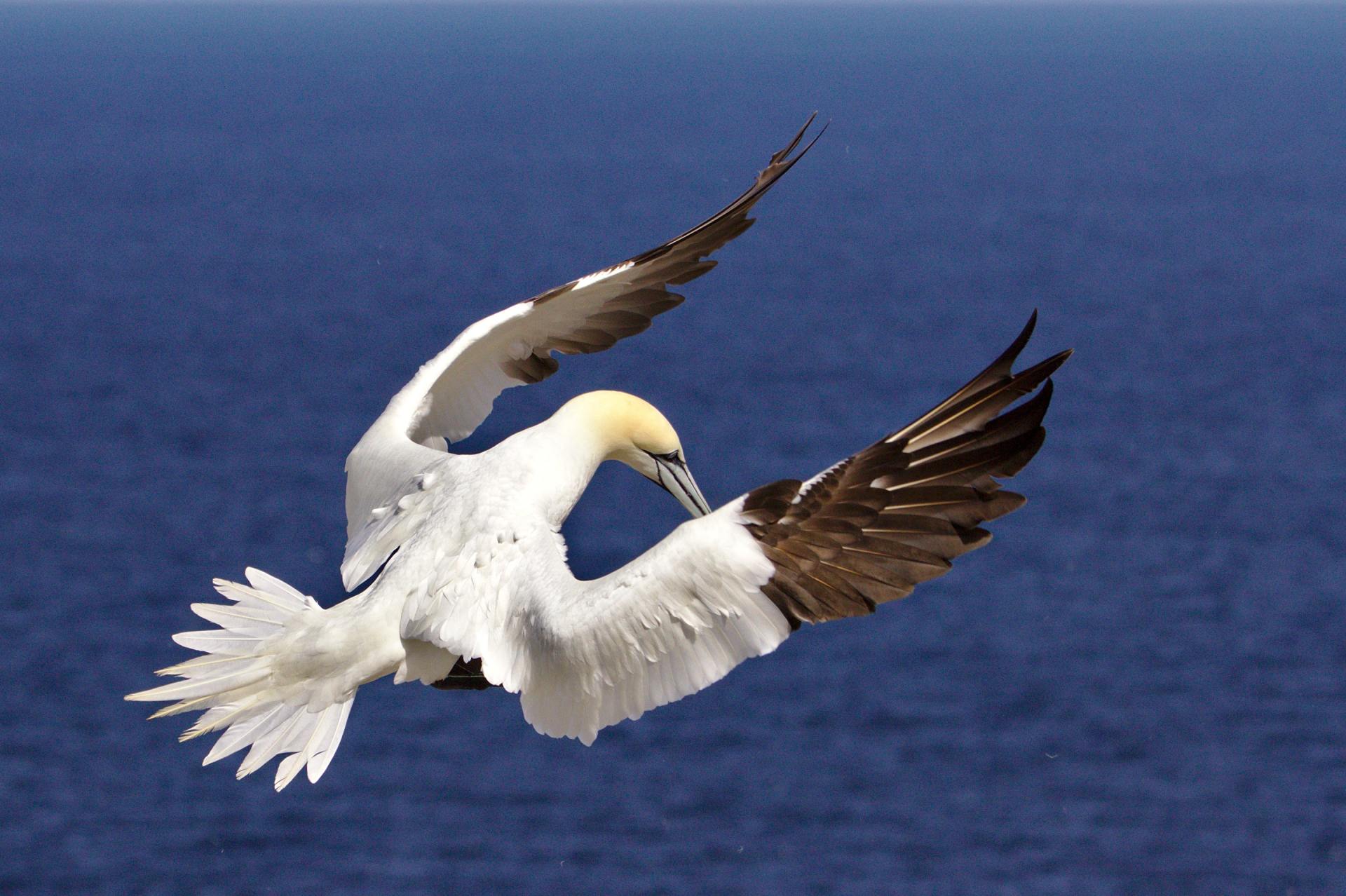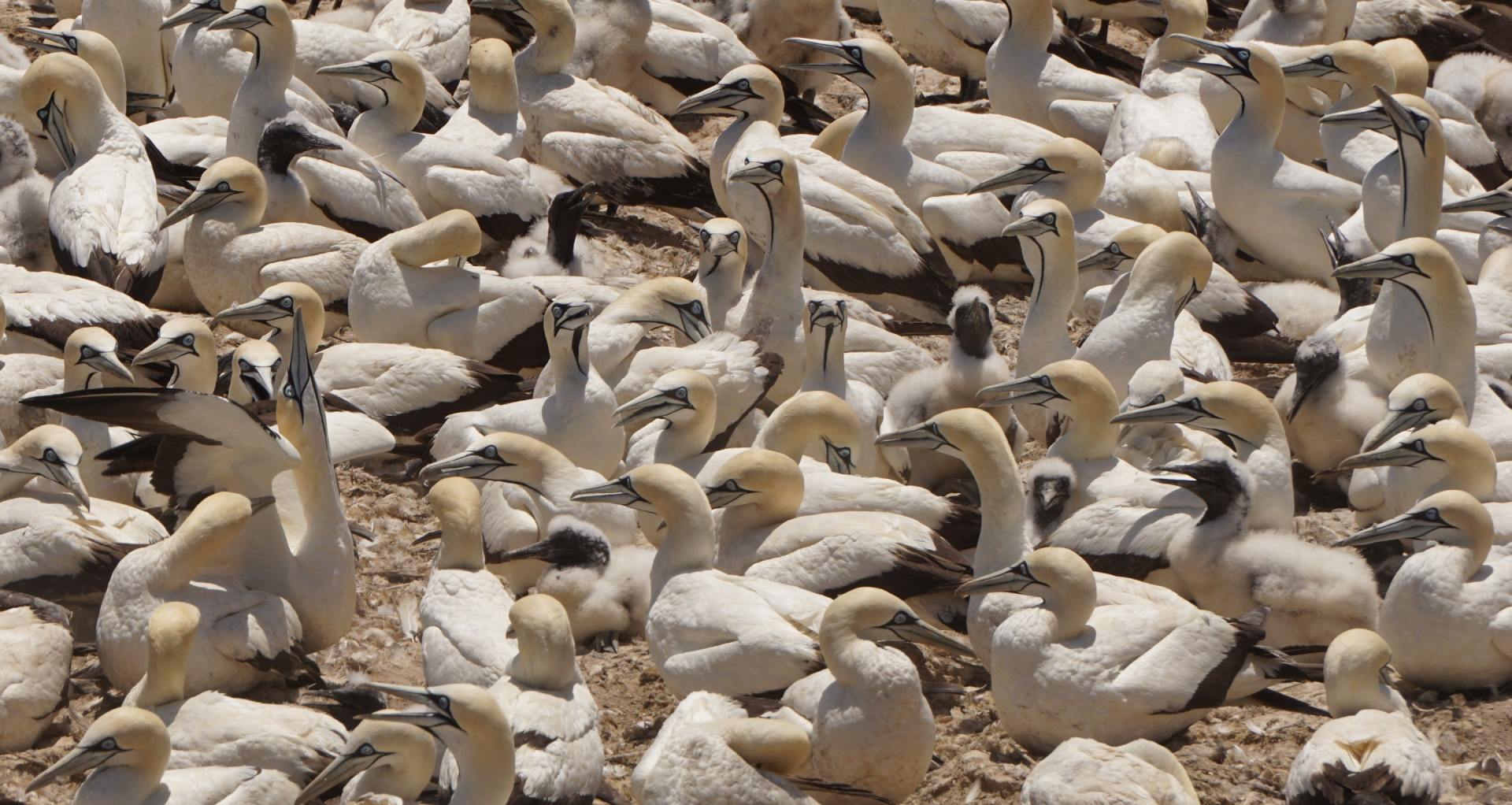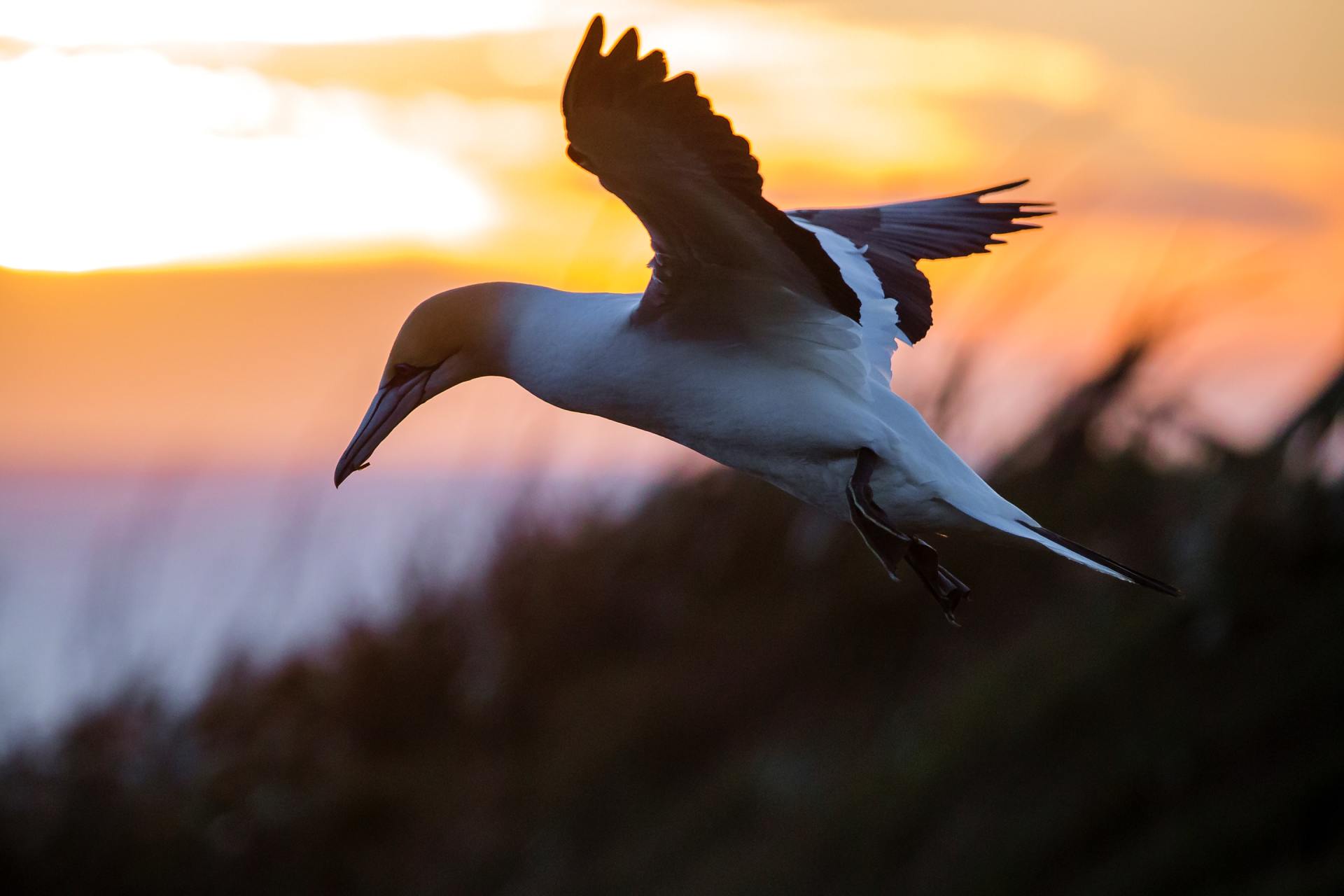How are Northern Gannets such successful hunters?
The good old saying: "birds of a feather flock together", seems to be true as scientists from Glasgow University discover what makes northern gannets such successful predatory seabirds.
Gannet about to plunge dive. Photo source: Wikicommons.
Gannets ( Morus bassanus
) are the largest seabird in the North Atlantic Ocean and can travel hundreds of kilometres from their nesting sites in search of prey. They breed along the Irish coastline and hunt in offshore waters. Gannets are easily identified by their black-tipped wings, yellow head and large wingspan that can span up to 180 sm. Gannets have many morphological and behavioural adaptations they possess to allow them to spot fish; which involves hovering over water, folding their wings and diving from heights of up to 40 meters, reaching speeds of 100 mph. Not to mention they have excellent binocular vision, they also gave small air-sacs under their skin which help to protect them from the impact of water when they dive and allow them to quickly resurface with their catch. They primarily feed on shoaling fish such as herring and mackerel, though they will also eat squid.
Now, a new study published in the Journal of Avian Biology
may help answer important questions on what makes the northern gannet decide to plunge over particular areas of ocean to hunt, how do they know where fish are most likely to be found?
The research led by Dr. Ewan Wakefield, from the Universities Institute of Biodiversity, Animal Health and Comparative Medicine, has found that gannets learn to hunt by following their elders.
The scientists monitored thousands of gannets travelling to and from a known nesting site, "Bass Rock", in the outer part of the Firth of Forth, Scotland. The nesting site is home to the world's largest gannet colony - with an estimated 75,300 breeding pairs. Their findings suggest that foraging success which depends on knowledge about the best fishing grounds may be passed down from generation to generation with younger birds following in the "wing flaps" of more experienced adults.
To come to the conclusion that an important component in these seabirds foraging strategies is "communal wisdom", the researchers modelled how frequently gannets travelled in flocks, the number of individuals in the flocks and the positions of the young and adult birds.
Flocking behaviour is beneficial for a number of reasons, such as to reduce aerodynamic drag and thus, save energy. In addition, flocking behaviour can improve foraging efficiency, navigational accuracy and can aid in predator avoidance.
Northen gannet colony. Photo source: Wikicommons.
This research adds to other important research carried out by Dr. Ewan Wakefield, from the University of Leeds’ Faculty of Biological Sciences, in 2013, on satellite tagged gannets in the U.K. that showed gannets forage in largely mutually exclusive areas and that these colony-specific home ranges are determined by density-dependent competition.
The collaborative project was conducted by researchers from Ireland, U.K. and France who successfully tracked the flight paths of nearly 200 gannets flying from 12 colonies around the British Isles.
It was expected that the researchers would be detailing Cris-cross patterned flights, however, they found themselves generating strictly segregated flight paths on maps instead. The most astonishing example came from off the south-west coast of Ireland where gannets from two colonies, Bull Rock and Little Skellig, are within sight of each other yet head off in different directions.
The study also found gannets did not defend these foraging sites and an invader from a neighbouring colony is free to fish. In other words, colonies of gannets maintain vast exclusive and clearly defined fishing ranges but do doing nothing to defend their territory from rival colonies. Individuals from the same colony appeared to share information about foraging sites, likely contributing to the establishment and maintenance of specific, long-term colonial territories.Gannet at sunset. Photo source: wiki commons.
- © Ocean Research & Conservation Ireland (ORCireland) and www.orcireland.ie , est. 2017. Unauthorized use and/or duplication of this material without express and written permission from this site’s author and/or owner is strictly prohibited. Excerpts and links may be used, provided that full and clear credit is given to Ocean Research & Conservation Ireland and www.orcireland.ie with appropriate and specific direction to the original content.
References
:
Wakefield,E.D , Bodey, T.W., et al., (2013) “Space partitioning without territoriality in gannets” published in Science DOI: 10.1126/science.1236077
Wakefield, E. D., Furness, R. W., Lane, J. V., Jeglinski, J. W. and Pinder, S. J. (2019), Immature gannets follow adults in commuting flocks providing a potential mechanism for social learning. J Avian Biol, 50:. doi: 10.1111/jav.02164
https://greenschoolsireland.org/wp-content/uploads/2018/02/Marine-Species-Fact-Sheet_Gannet.pdfSHARE THIS ARTICLE
















